Simplifying Life Insurance in India
11 Developmental Milestones of a 13 Month Old Baby
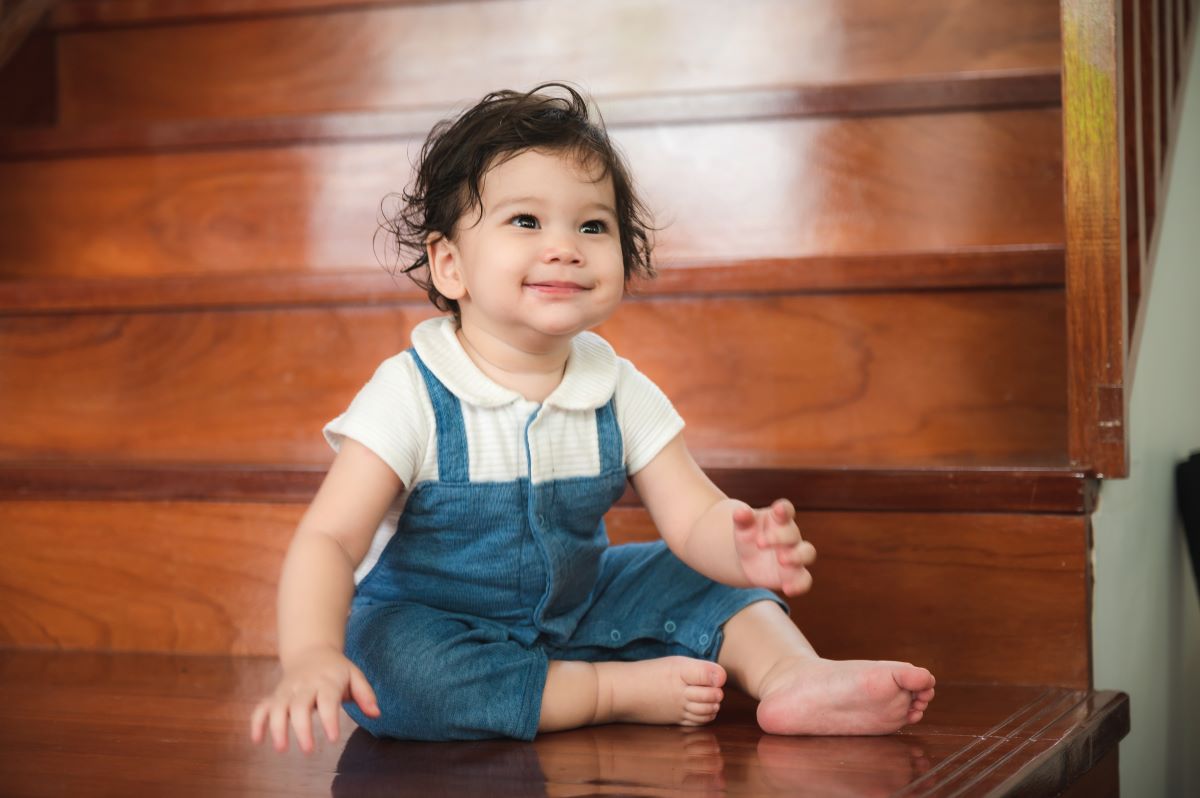
When your baby is 13 months old, you always expect them to be lively. Their emotions and languages are developed, and they have begun slowly finding space. They work out different things for themselves, and you're proud of how quickly they have grown. But there are a few things to watch out for.
Feeling a mix of excitement and anxiety at this age is quite typical among parents. Giving in to showing them empathy and love is part of being with them during this tender age; however, knowing the important 13-month-old infant milestones is also necessary. Keep reading to know what a 13-month-old should be able to do.

Table of Contents

What Most Babies Do by 13 Months?
Most babies around 13 months of age display interesting developmental abilities that express their development across many domains. Physically, most babies this age are already up and cruising or walking independently. Cognitively, they demonstrate object permanence and can solve some problems, playing almost exclusively exploratory play with toys.
Regarding speech, most can babble some understandable words and comprehend basic commands, thus enabling them to meet their needs more effectively and clearly. Generally, at this time, the baby becomes more active, curious, and interested in the environment and prepares for subsequent developments in the coming months.
13 Month Milestones & Development Checklist
1. Movement Milestones For a 13 Month Old Baby
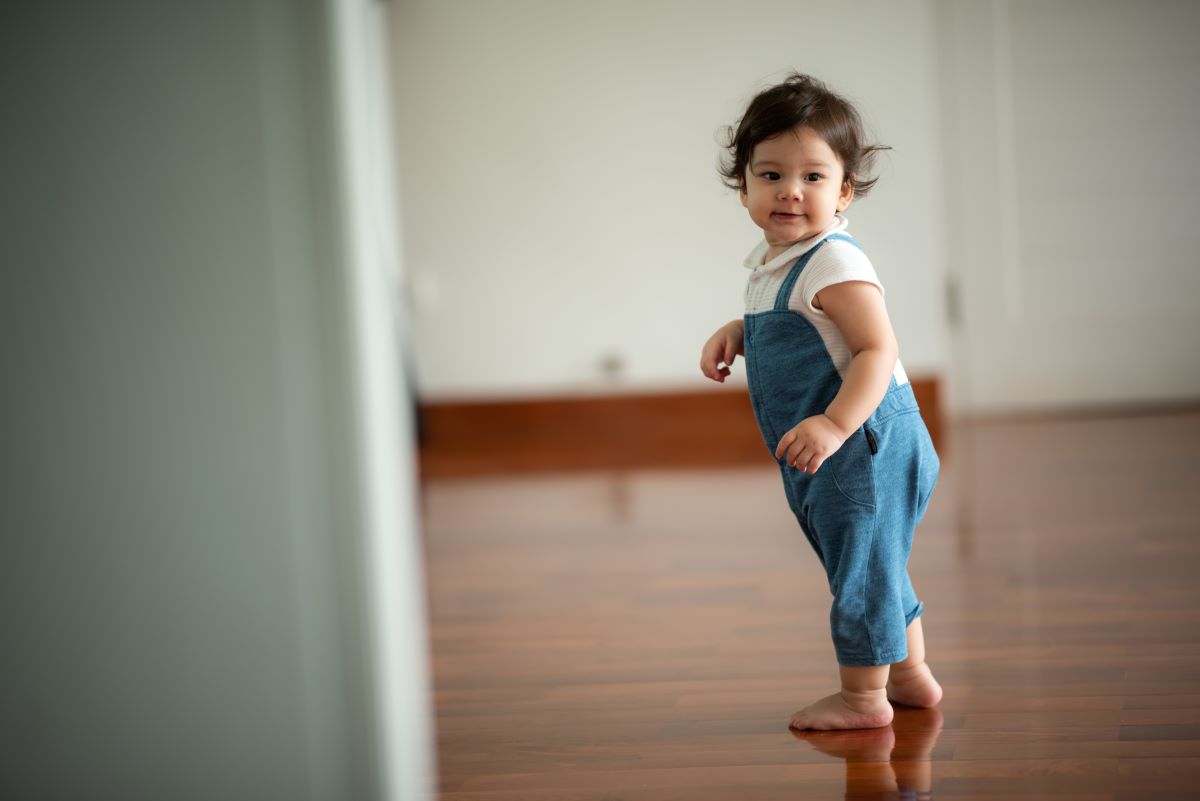
Movement Milestones for a 13 month old:
- Walking Independently: Many masters walk without support.
- Cruising: Moves along furniture for support.
- Squatting and Standing: Good at squatting down to pick up toys, then standing up.
- Climbing: Like rising onto low furniture or steps.
- Pushing/Pulling Toys: They enjoy pushing or pulling toys, which improves their walking skills.
- Kicking a Ball: Kicks or throws one, coordinating the act.
- Bending and Reaching: Bends to pick on things or objects and reach for things.
- Balance: Better balance enables smooth movement and change in direction.
- Surface Investigation: They investigate various surfaces on which to crawl or walk.
These movement milestones indicate that your baby is developing in strength, coordination, and confidence, which can help them sustain more complex actions as they progress.
2. Visual and Hearing Milestones For a 13 Month Old Baby
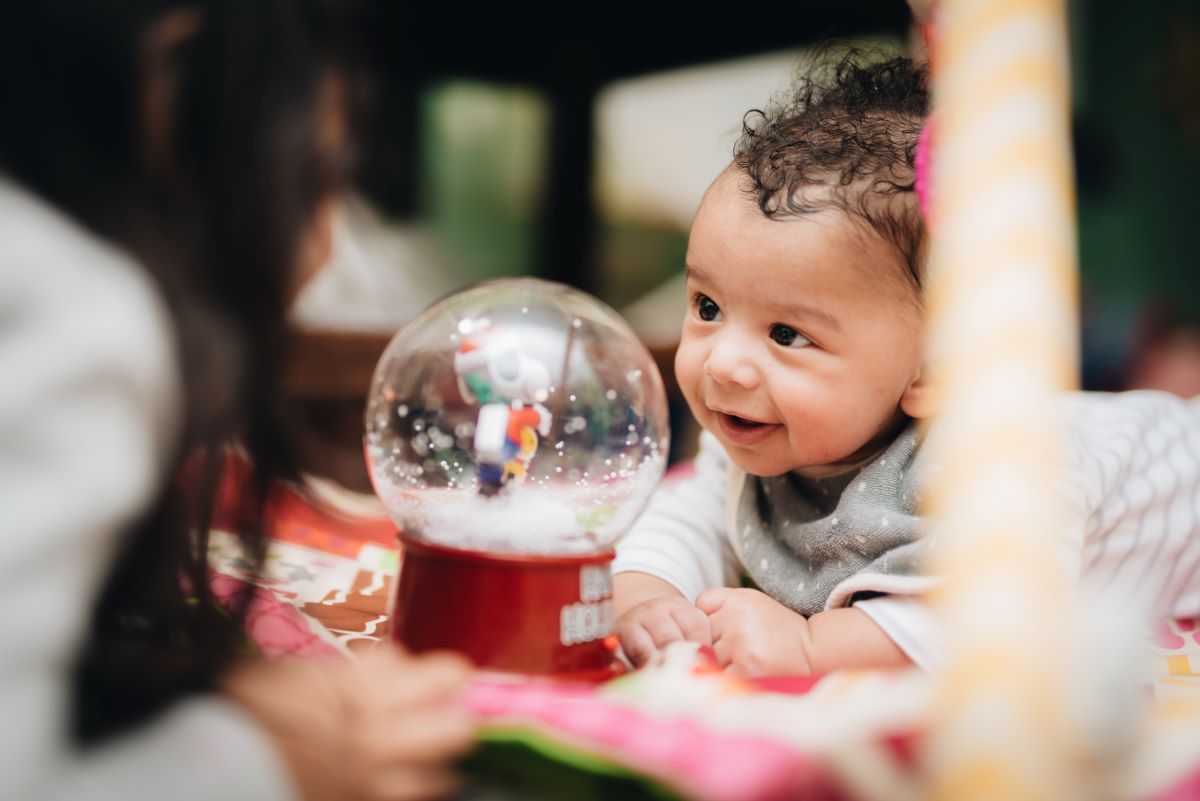
Visual Milestones:
At 13 months, infants experience significant visual changes crucial for development and interaction with the world. Here are a few major visual milestones to look out for:
- Depth Perception: The child can better gauge distances to help him walk or climb.
- Following Moving Objects: Can track objects moving nicely across his visual field.
- Hand-Eye Coordination: The coordinating skills improve reaching out for an object.
- Looking Around: They show interest in closely looking at pictures and objects.
- Recognising Known Faces: They easily recognise and respond to known faces.
Hearing Milestones:
At 13 months, the child will make great improvements in their hearing. Its importance is that it aids in the development of language and intersubjectivity. Here are some auditory achievements to look out for:
- Reacts when called by name; it is evidence of recognition.
- Understand familiar words like "no" or "bye-bye."
- Can maintain instructions/requests, like "come here."
- Will attempt to imitate the sounds and words they hear.
- Response to Music and can move when this happens.
These milestones reflect your baby's increasing sensory awareness and her developing communication.
3. Smell and Touch Milestones For a 13 Month Old Baby
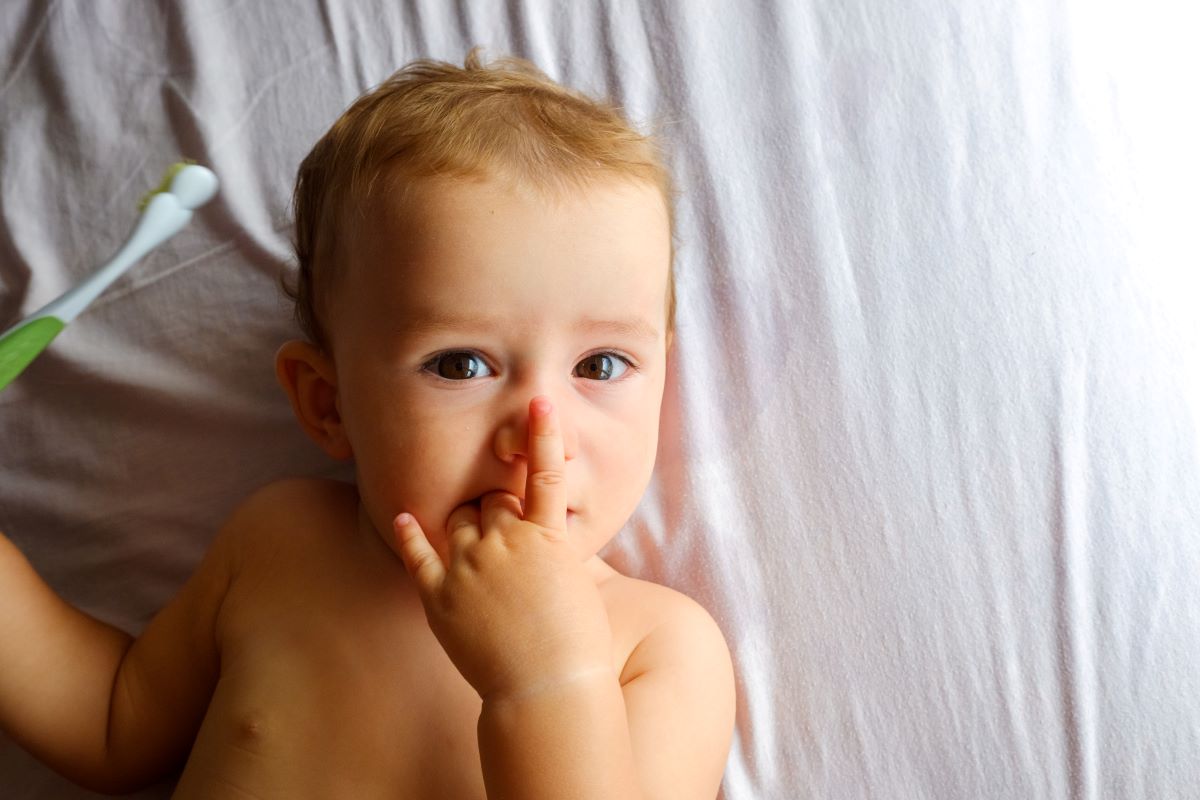
Smell Milestones:
Smell milestones ensure that your baby reacts to a particular smell, familiar or unfamiliar and responds to it. Here are the common smell milestones:
- Recognising Familiar Scents: Babies start recognising and showing a preference for familiar smells, such as those of caregivers or favourite foods.
- Reacts to New Smells: They will now be interested or repelled by new smells, indicating sensory development.
- Food Smell Interest: Increasing interest in smells from various foodstuffs enhances their acceptance of new tastes.
Touch Milestones:
At this age, your baby explores new textures and shows curiosity for all kinds of toys and things. Here are some common touch milestones:
- Touch Exploration: The babies deliberately explore objects through touch and grasp and play with diverse textured objects to amplify sensory experiences.
- Development of Fine Motor Skills: Ability to pick small objects using a pincer grip and hand-eye coordination.
- Response to Different Textures: General preferences for various texture contacts, such as soft, rough, or smooth materials.
- Sensory Play Engagements: Enjoyment in water, sand, and play dough—activities that promote tactile discovery and creativity.
These milestones illustrate how babies use their senses to learn of their surroundings and connect meaningfully with their world.
4. Sleep Milestones For a 13 Month Old Baby
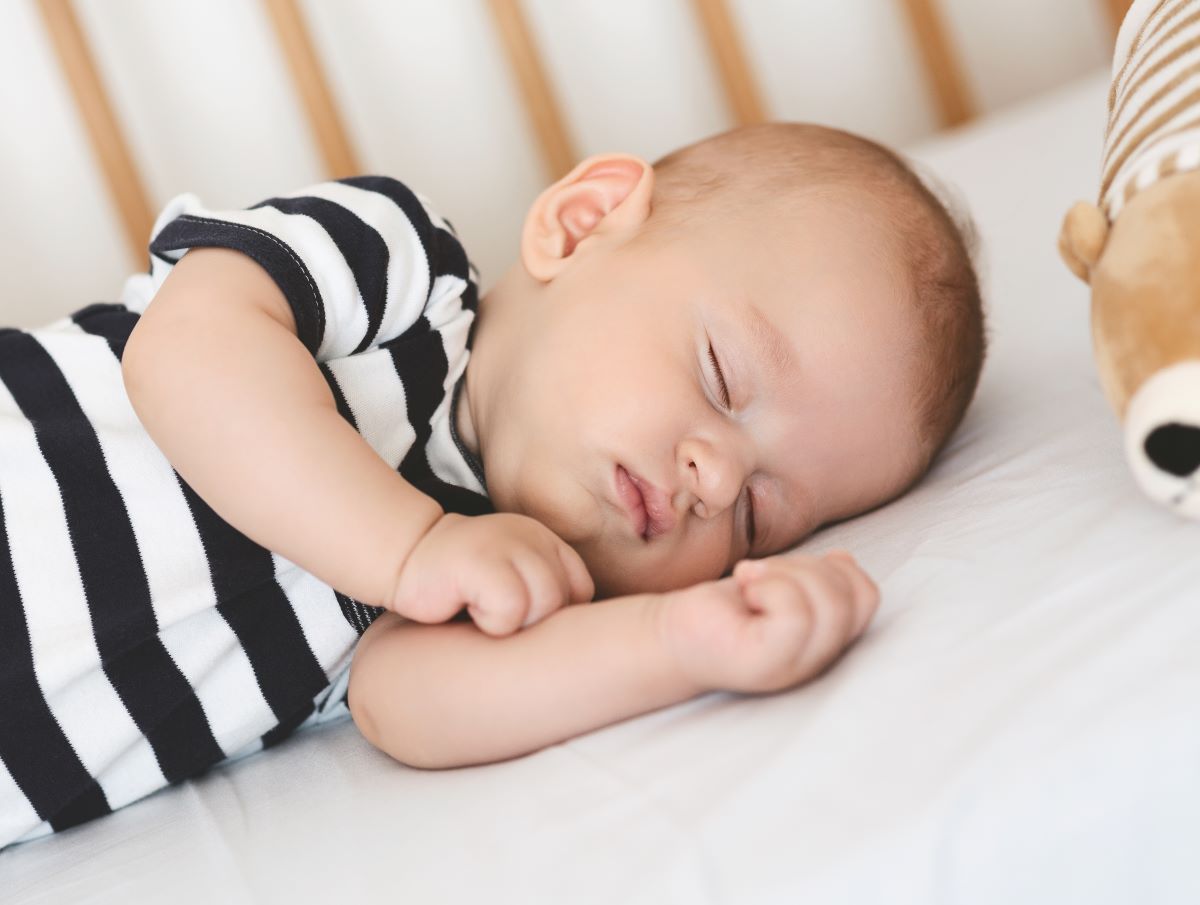
Sleep Milestones for a 13 month old:
- Consolidated Sleep: Most babies sleep uninterrupted nights for long hours, 10 to 12 hours, with fewer night-time awakenings.
- Daytime Naps: Many babies take one or two naps daily, totalling 2 to 3 hours. One nap is in the daytime, while the other is in the evening.
- Self-Soothing: Self-soothing occurs when the baby sleeps independently by thumb-sucking or cuddling a favourite toy.
- Separation Anxiety: This age begins to portray separation anxiety by the child, which ends up taking their mind off from sleep if a caregiver leaves his room.
5. Health Milestones For a 13 Month Old Baby
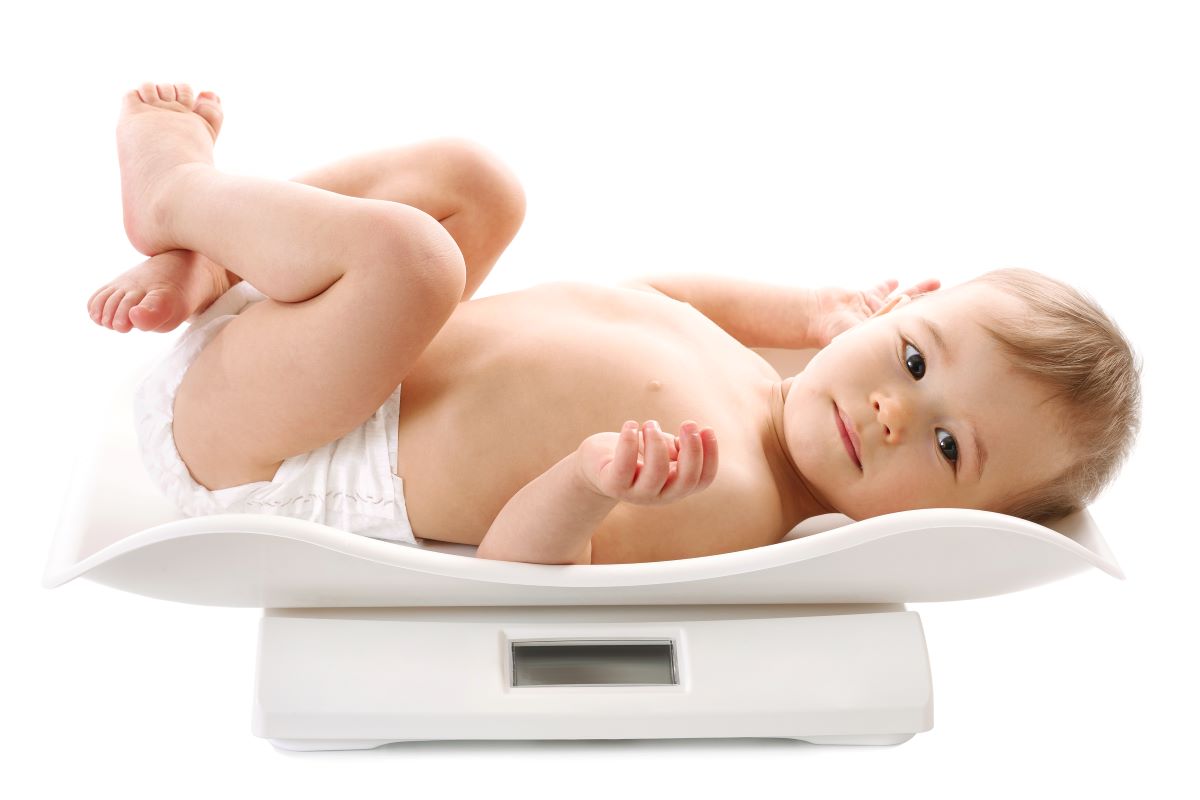
Here’s a chart summarising the ideal parameters for a 13-month-old baby:
Regular check-ups with a paediatrician can provide further insights into your child's growth patterns.
6. Feeding Milestones for a 13 Month Old Baby
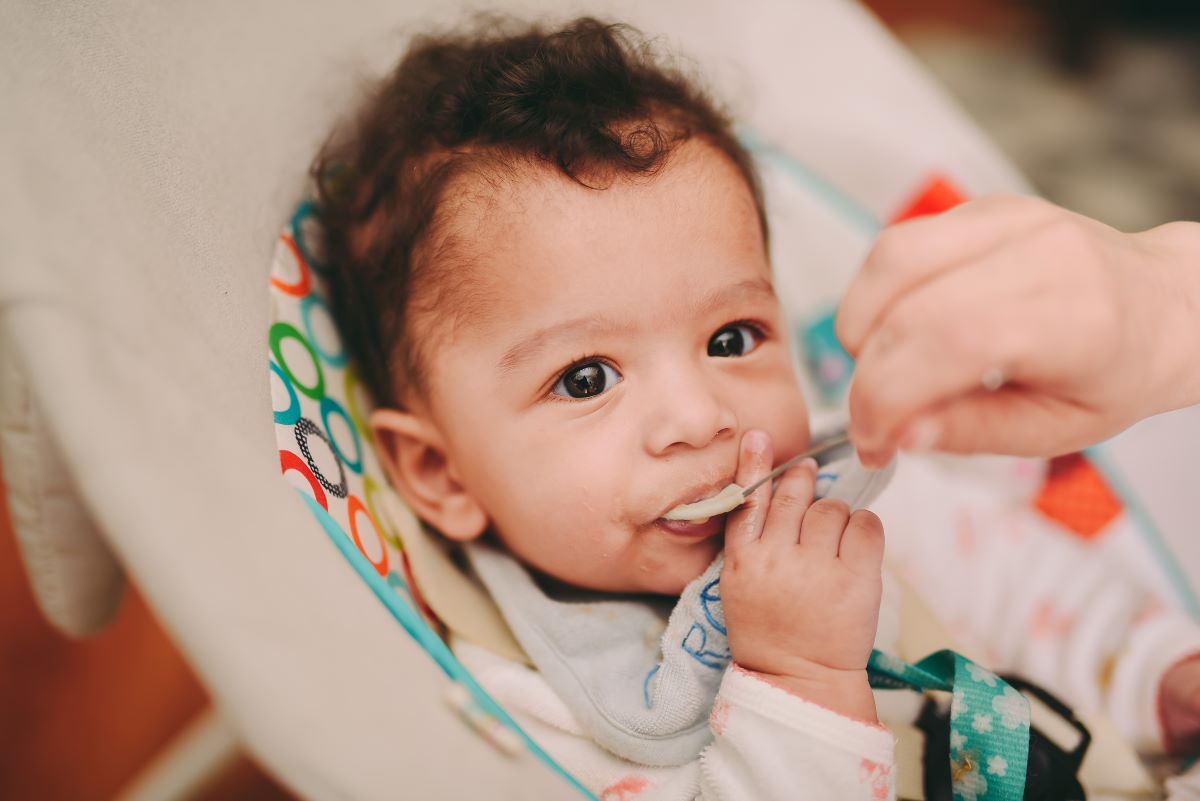
Feeding Milestones for a 13 month old:
Thirteen months is when babies reach major feeding milestones that facilitate growth and independence. Major milestones to look out for include the following:
- Self-Feeding: Most children begin self-feeding with their hands at the age of 13 months and eventually develop the use of a spoon.
- Variety of Foods: They can adapt to a broader range of textures and flavours, often appreciating dinner table foods and tasting various fruits, vegetables, and proteins.
- Drinking From a Cup: They can tolerate sippy or regular cups and drink independently, with some improvement in their ability to consume.
- Mealtime Routine Understanding: The child is becoming increasingly aware of the mealtime routine and may have preferences for specific foods at specific times.
- Food Imitation: By mimicking adults' eating behaviours at meal times, the baby can become more interested in eating and trying new foods.
- Sensitive to Their Hunger and Fullness Cues: Your baby is more sensitive to their hunger and fullness cues, which could assist them in self-regulating food intake.
What to Feed:
Here are some appropriate foods for a 13-month-old baby, keeping in mind their nutrition content and texture:
Providing a balanced and varied diet helps foster healthy eating habits and support your baby's nutritional needs.
7. Schedule and Routine Milestones For a 13 Month Old Baby
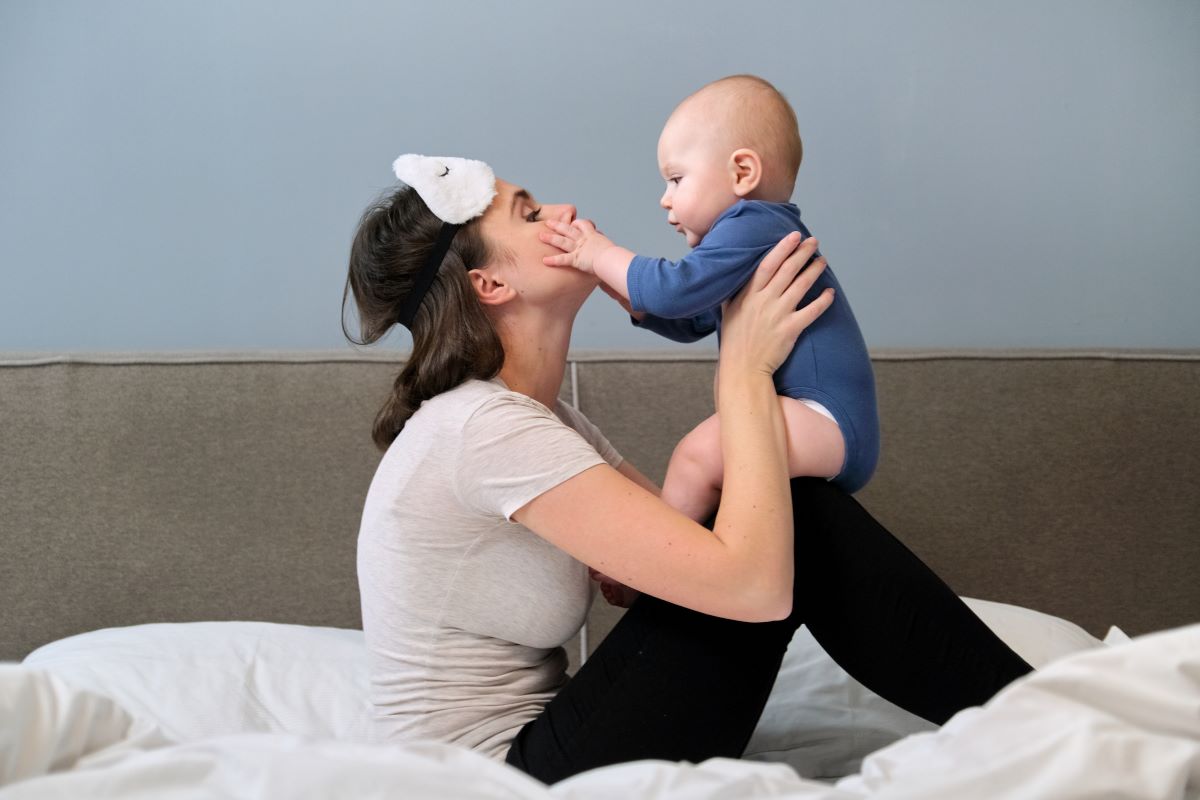
Here’s a suggested daily schedule tailored for a 13 month old baby:
8. Cognitive Milestones for a 13 Month Old Baby
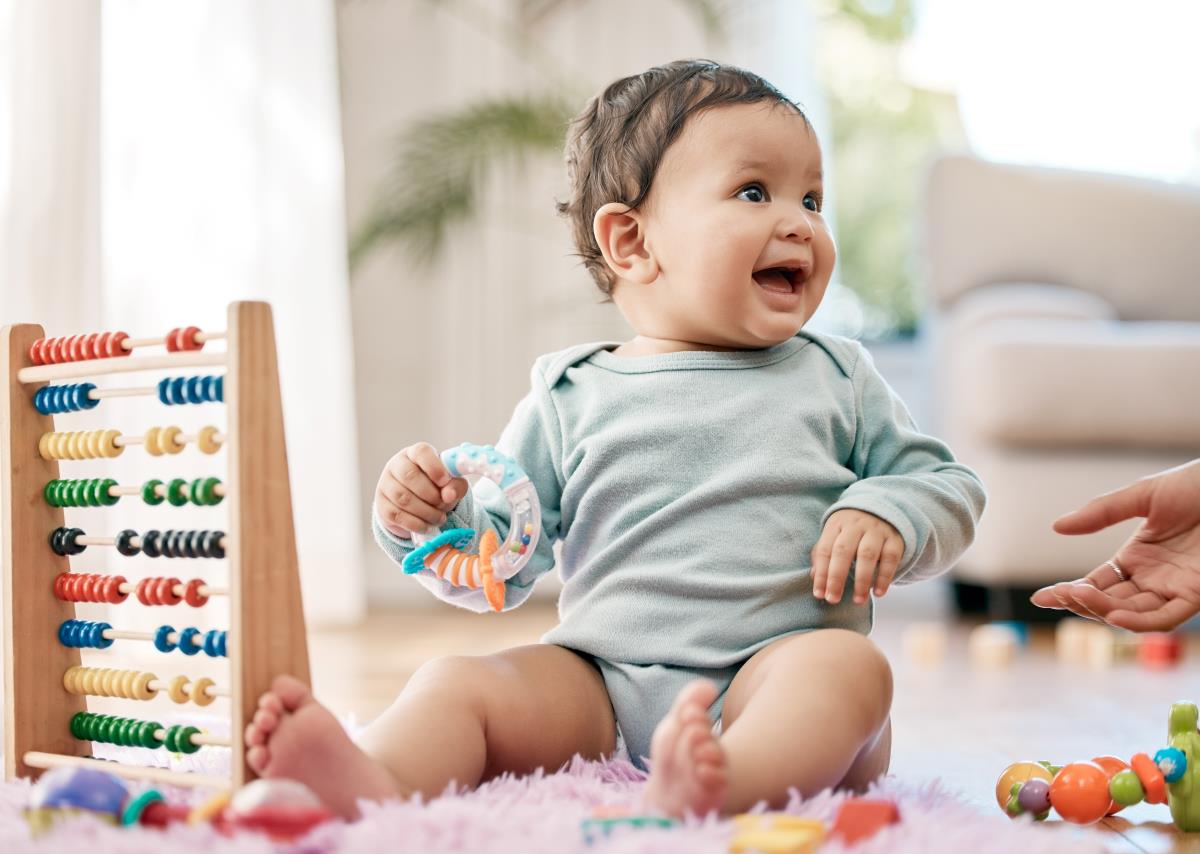
Here are key cognitive milestones for a 13 month old:
- Object Permanence: Children know objects remain accurate even when they can't see them, so peek-a-boo games might be great fun.
- Problem Solving: At this point, they begin to exhibit simple problem-solving. For instance, they find out how to reach a toy beyond their grasp.
- Imitation: Babies begin to imitate adults and older children. This imitation is essential in learning and developing social behaviour.
- Cause-and-Effect Knowledge: They acquire basic cause-and-effect understanding, for instance, a button that activates a toy to light up and make noise might bring.
- Enhanced Concentration Ability: A baby in this development stage can focus on an activity much longer. They concentrate on more engaged play and exploration.
- Remembering Familiar People and Names: They can now recall some familiar faces and might react accordingly upon being called, making socialisation easier.
- Exploration through Curiosity: Curiosity increases their keen sense of exploration, causing them to make objects move and examine them more effectively.
9. Social and Emotional Milestones For a 13 Month Old Baby
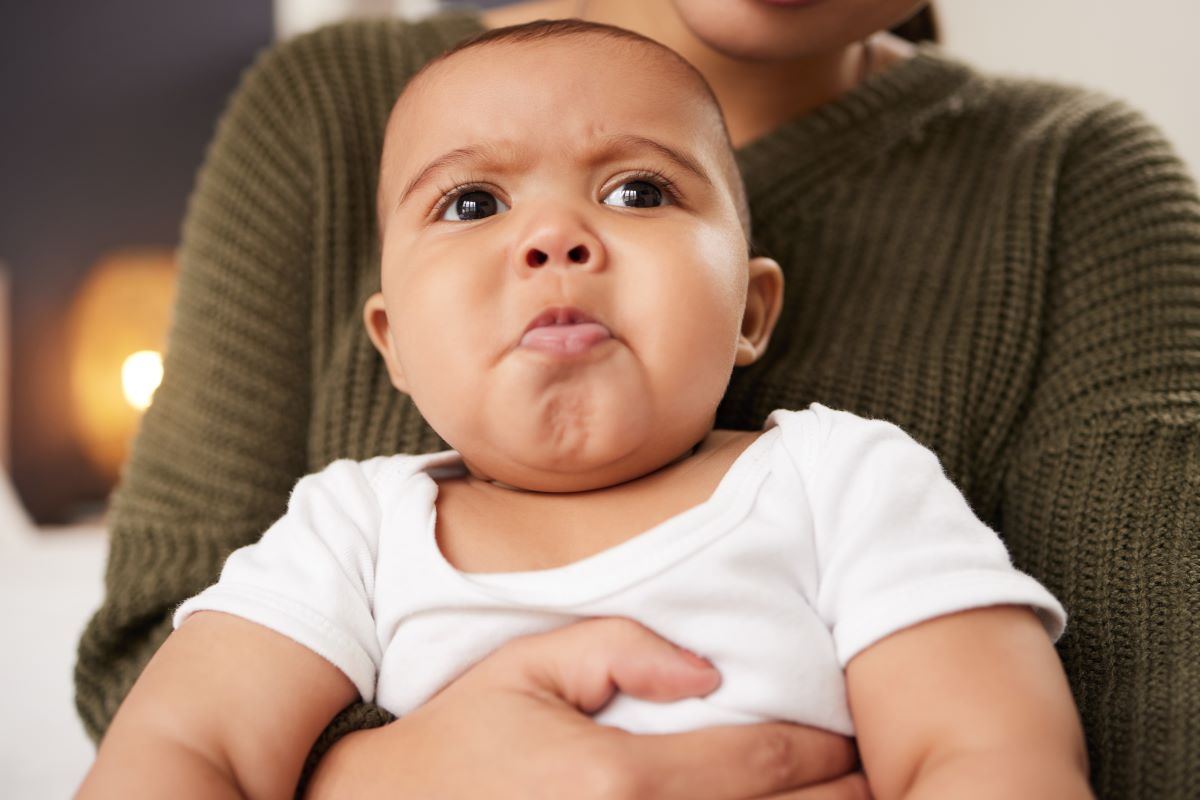
Here are key social milestones for a 13 month old:
- Attachment to Caregivers: Most children at this age develop an attachment to their primary caregivers, taking comfort in their presence and securing their feelings.
- Separation Anxiety: They develop separation anxiety if they are separated from their parents or other caregivers and show them an understanding of relationships.
- Range of Emotions: They begin to express a broader range of emotions, including happiness, frustration, and anger, through facial expressions and vocalisation.
- Social Behavior Imitation: The babies mimic several social behaviours, for example, waving goodbye or clapping, to understand social norms.
10. Language and Speech Milestones For a 13 Month Old Baby
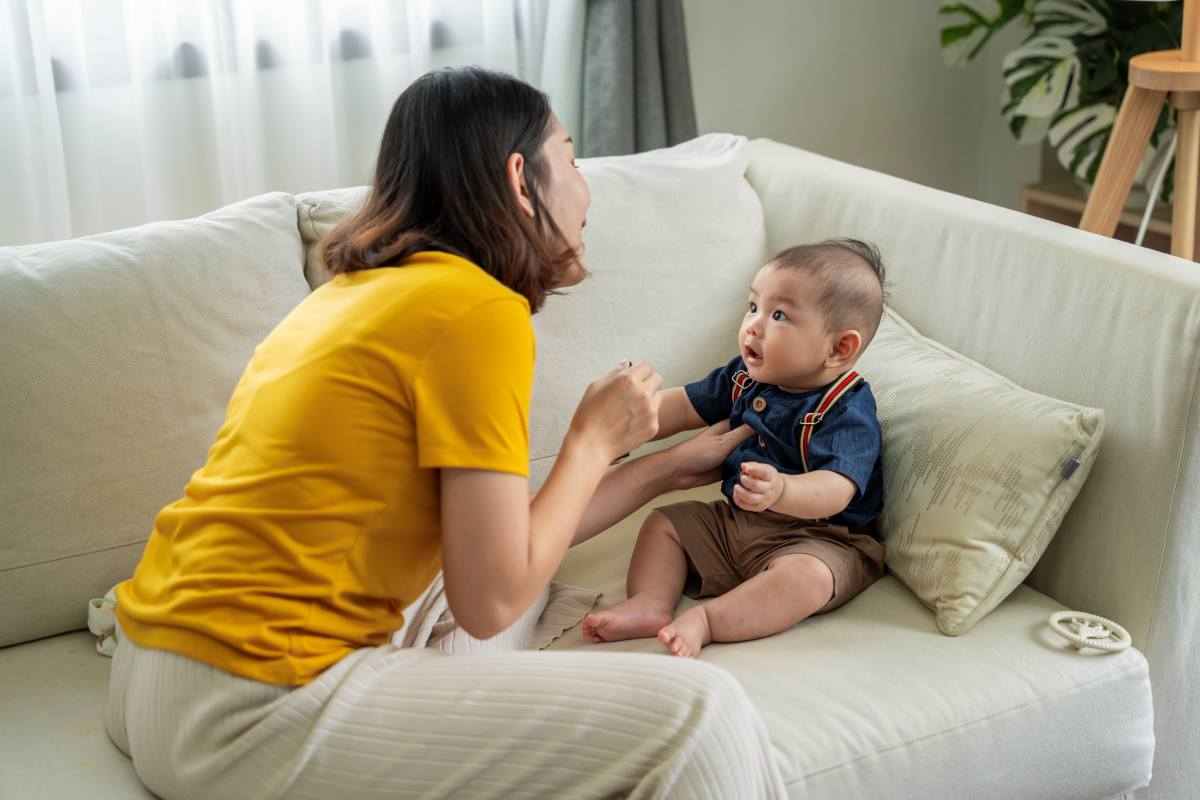
Language and Speech Milestones Development for a 13 month old:
- First Words: Many babies say their first recognisable words, like "mama" or "dada," and may use them meaningfully.
- Increased Vocabulary: They may understand quite a few words and can recognise familiar objects and people when named.
- Imitation of Sounds: They repeat sounds, rhythms, and intonation and show interest in speech form and word.
- Use of Gestures: Starts to use gestures such as pointing, waving, or nodding to convey his wants and emotions.
11. Play Milestones For a 13 Month Old Baby
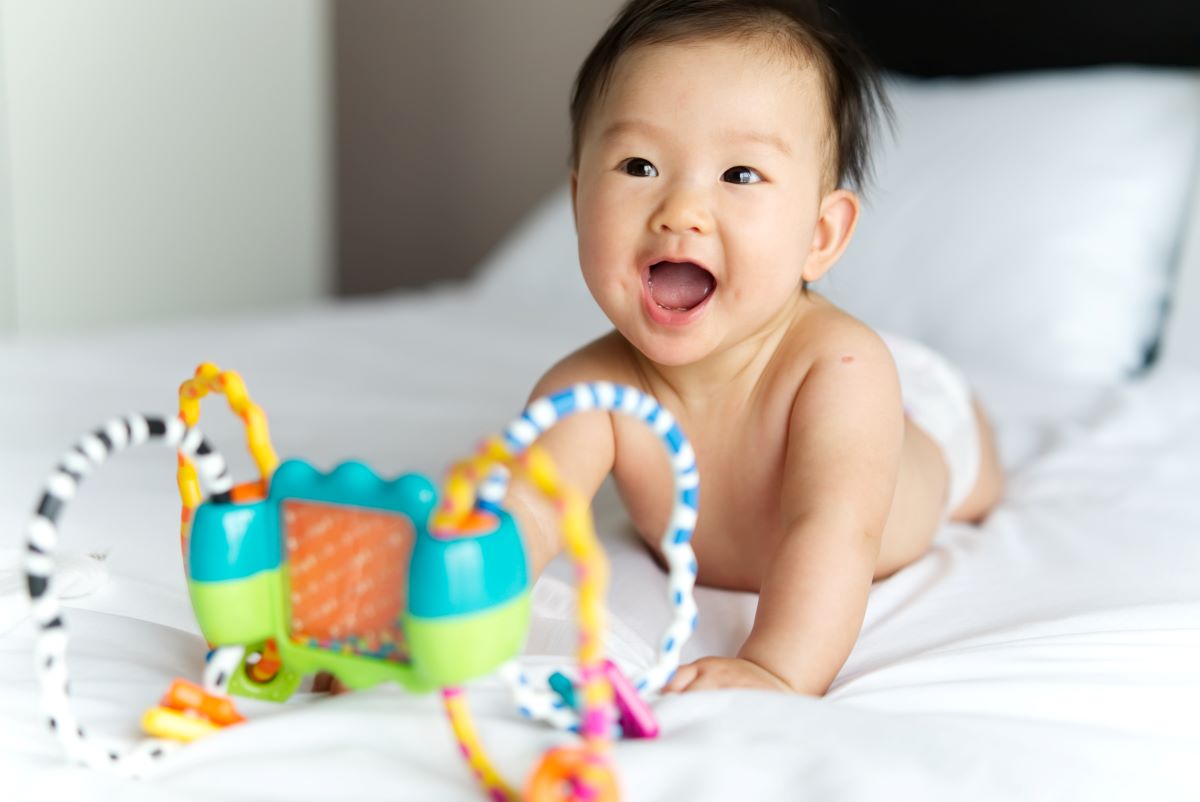
Play Milestones for a 13 month old:
- Exploratory Play: Babies explore their world actively, using toys and objects to discover the properties and functions of things.
- Imitative Play: They will almost ritually mimic commonplace activities, like pretending to talk on a cell phone or feeding a doll, fostering creativity.
- Cause-and-effect play: Babies love playing with toys that show cause-and-effect, like stacking blocks or pushing a button that activates the sounds and lights.
- Use of Simple Toys: They can handle simple toys like stacking rings or shape sorters, which help them develop fine motor skills and problem-solving capabilities.
- Social Play: Babies begin simple social plays with caregivers, such as peek-a-boo, pat-a-cake, and the like, which promote the baby's social skills and bonding.
What are the Developmental Activities for a 13 Month Old?
1. Playing With Blocks
Provide your baby with soft or wooden blocks to stack. This activity helps hand-eye coordination and builds fine motor skills while learning about balance and spatial reasoning. Encourage knocking them over and starting again, developing problem-solving skills.2. Reading Interactive Books
Use strong board books with flaps or textures. Reading together promotes language development, and interactive elements keep your baby engaged as they make their way through stories. Ask questions about the pictures to stimulate conversation.3. Sensory Play With Textures
A sensory bin can be made using rice, pasta, or water. The baby can play around with different textures to improve their sense of touch. The bin can also be prepared with measuring cups or scoops to enhance fine motor skills by pouring and transferring.4. Exploration by Music
Introduce the use of shakers or drums. Listening to music together will enhance your child's ability to develop rhythmic skills and become coordinated while appreciating music.
Encourage children to sing nursery rhymes and dance to promote physical activity.
5. Art Using Crayons
Draw with nontoxic crayons or finger paints to allow your baby to express their activity. Messy play develops talent refinement and provides an opportunity for sense exploration. Notice the artwork you discover your child making and comment on their achievement.6. Pretend Play with Dolls
Provide simple props such as dolls, stuffed animals, or kitchen items. Most importantly, you can carry on imaginative play by enacting various scenes with your baby. This will assist your child in developing social and cognitive skills.7. Exploring the Nature
Walk around in the stroller, or let your baby explore a safe outdoor area. Nature offers diverse sights, sounds, and textures to encourage exploration and learning. Point to birds, trees, and other features to promote language and observation.8. Shape Sorters
Provide a variety of toys that require sorting shapes and placing them in the correct holes. This activity provides an elementary form of problem-solving and produces some hand-eye coordination while introducing geometric concepts.9. Water Play
Fill a shallow pan with water. Offer cups and small toys for pouring and splashing. Water play is fun but also develops sensory experiences and fine motor skills. As you play, talk about full and empty to introduce concepts of basic maths ideas.10. Solving Simple Puzzles
Introduce chunky puzzles with a few large pieces so that it may look easy. This activity promotes cognitive development and spatial reasoning as the baby understands which pieces fit together. Encourage them to boost their self-confidence and motivation.11. Animal Sounds Game
Make animal sounds before your baby and ask him to repeat them after you. This is a fun game to play together that, in reality, contributes to language acquisition while also teaching about animals, and you'll find them attractive at an early age.12. Bubble Fun
Blow bubbles for your baby to chase and pop. This exciting activity encourages physical movement as the baby reaches for and pops the bubbles. You can also make bubble-blowing a routine to build anticipation and excitement.13. Follow the Leader
A game with a simple action involving your baby, like clapping, jumping, or spinning. It helps develop gross motor skills and encourages following directions. There should be times when you change moves to avoid repetition and for the interest of the game.14. Simple Cooking
Engage your baby by showing them simple cooking activities, such as mixing ingredients or washing fruits and vegetables. This will encourage them to explore with their senses while also allowing the introduction of early learning concepts related to food and nutrition.15. Colour Recognition with Items
While engaging in the numerous forms of play described, play colourful colour-matching games with colourful toys or household items and ask your baby to identify or sort different items by colour, which will develop their cognitive development and use of language.Safety Tips for a 13 Month Old Baby
Here are a few essential safety tips to follow that can help create a secure environment for your little one:
Savings & Protection Options for Your Child
How to Support a Baby's Development at 13 Months?
1. Encourage Movement
A safe space is provided so that your little one can wander. Push toys are used to encourage your child to start walking and to help them stand and be on the move. The little one is played with, encouraged, and motivated enough to take steps, building up their confidence.2. Encourage Language Development
Talk to your baby in simple words that they will understand. Read exciting books with pictures to them to increase their new vocabulary and ideas. Please encourage them to repeat words and sounds to build upon this new communication ability.3. Enhance Fine Motor Skills
Offer toys that are graspable, stackable, or even sortable; these are good exercises for improving hand-eye coordination. Activities like finger painting or playdough may also develop dexterity while exercising creativity.4. Encourage Social Interaction
Schedule playdates with other children so that your baby learns social skills. Do parallel play but at arm's length so they can get accustomed to watching and playing along at their own pace. Model sharing and taking turns so that they learn important social behaviours.5. Help with Emotional Development
Attend to your baby's needs immediately to build trust and security. Calm him or her whenever he or she is frustrated; you have to guide him or her in expressing feelings. Create routines to help them feel stable in life.6. Experience Variety with Senses
Incorporate your child into sensory play using safe materials that will stimulate their senses. Take them outdoors for walks to expose them to different sights and sounds, making them curious about the surroundings.7. Health Check and Support
Schedule regular paediatric check-ups to monitor her growth and development. Offer a balanced, varied diet to satisfy their nutritional needs and encourage healthy eating habits and independent feeding.8. Be Involved
Spend quality time playing and engaging in activities with your baby. This engagement is fundamental to their emotional and social development. Be attentive to what interests them and change activities accordingly so that they remain engrossed and motivated.When to Talk to the Paediatrician?
Developmental Delays:
By the expected age, the child is not meeting significant milestones like walking, speaking some words, or showing interest in social interactions.Behavioural Concerns:
Your child may exhibit significant changes in behaviour, tantrums, or apparent anxiety or withdrawal that appear unusual.Feeding Issues:
If your child also becomes averse to certain foods and foods look unappealing to him. He also shows physical symptoms of swallowing difficulties.Sleep Problems:
If your child does not sleep peacefully and has chronic sleep problems, fails to fall asleep at bedtime, wakes up during the night, etc.Social Interactions:
If your child shows aversion towards eye contact, does not seem to want to play with others, or appears to show little interest in other people.Persistent Illness:
Your child keeps getting sick, with recurring fevers, coughs, or GI problems that do not improve.Physical Complaints:
If you have any physical symptoms that worry you, including unusual rashes, persistent vomiting, changes in bowel movement, etc.Vaccination Concerns:
If you have queries concerning the vaccination schedule and the possible side effects that vaccines can have.FAQs about 13 Month Developmental Milestones
What are developmental milestones at 13 months?
How can I get my 13 month old baby to walk?
If you want your baby to walk:
- Ensure his surroundings are safe and large enough for him to practice.
- Provide support through push toys.
- Leave some of the toys a little far from them to introduce them to the distance.
What speech milestones do I need to expect in my 13 month old baby?
Is it normal for my 13 month old baby to be shy around new people?
How much should my 13 month old be eating?
What social behaviours should I look for in my 13 month old baby?
How can I support my 13 month old baby's language development?
What physical milestones should I watch for in my 13 month old baby?
Is it normal for my 13 month old baby to have mood swings?
How can I support fine motor skills for my 13 month old baby?
When should I be concerned about my 13 month old baby's development?
What are the suitable toys for a 13 month old baby?
How will I know that my 13 month old baby is developing at their own pace?
What cognitive skills should I expect from my 13 month old baby?
What if my 13 month old baby is not interested in socialising?
Is it normal for a 13 month old to push away new foods?
How can I support my 13 month old baby’s emotional development?
How important is routine at a 13 month old age?
When should I schedule my 13 month old baby's next check-up?
Important Articles about Infant Developmental Milestones
Latest News
Read More




















